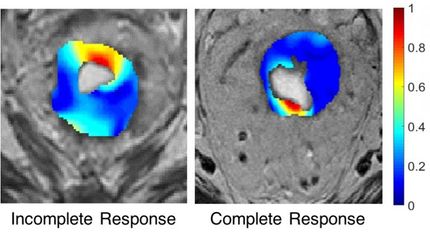Sanofi-aventis and Oxford Biomedica report encouraging TroVax Phase II results in metastatic renal cancer
Sanofi-aventis and Oxford BioMedica announced encouraging updated results from Phase II trials of TroVax in metastatic (advanced) renal cancer. TroVax is Oxford BioMedica's lead therapeutic cancer vaccine, which is being developed in metastatic renal cancer and other solid cancers in collaboration with sanofi-aventis. The Phase III TRIST (TroVax Renal Immunotherapy Survival Trial) study is ongoing in patients with locally advanced or metastatic clear cell renal carcinoma and is expected to complete in the first half of 2009. Phase III trials in colorectal cancer are expected to start in 2008.
Results from three Phase II trials in metastatic renal cancer were presented by the trials' respective Principal Investigators at the 2008 Annual Meeting of the American Society of Clinical Oncology (ASCO). Oxford BioMedica has completed four Phase II trials of TroVax in metastatic renal cancer in a total of 88 patients to evaluate the safety, immunogenicity and efficacy of TroVax in combination with standard therapy or as a single agent. The ASCO presentations provide analyses of three of the four Phase II trials of TroVax in metastatic renal cancer. The three trials enrolled 61 patients in centres in the USA and UK. Although each of these studies had differing patient cohorts in terms of prior treatment, concomitant therapy and histological type of tumour, all studies indicated that TroVax was well tolerated and generated consistent and robust immune responses to the tumour antigen 5T4 (55 of 60 evaluable patients, 92%). Overall there were no serious TroVax-related adverse events. The most frequent TroVax-related side effect was low-grade transient irritation at the injection site. Furthermore, all studies showed encouraging levels of clinical benefit relative to historical controls.
Organizations
Other news from the department research and development

Get the life science industry in your inbox
By submitting this form you agree that LUMITOS AG will send you the newsletter(s) selected above by email. Your data will not be passed on to third parties. Your data will be stored and processed in accordance with our data protection regulations. LUMITOS may contact you by email for the purpose of advertising or market and opinion surveys. You can revoke your consent at any time without giving reasons to LUMITOS AG, Ernst-Augustin-Str. 2, 12489 Berlin, Germany or by e-mail at revoke@lumitos.com with effect for the future. In addition, each email contains a link to unsubscribe from the corresponding newsletter.
More news from our other portals
Last viewed contents
Wyeth licenses drug targets from osteoporosis collaboration with Galapagos
Merck and Ono Pharmaceutical Form Collaborations to Develop Oral Multiple Sclerosis Drug and Cancer Immunotherapy
Evidence grows that melanoma drugs benefit some lung cancer patients - Many patients with BRAF-mutant cancers benefit from treatment with BRAF inhibitors, European researchers report at ELCC
Invitrogen Acquires Products and Technology Rights of PanVera LLC from Vertex Pharmaceuticals
Unusual protein modification involved in muscular dystrophy, cancer

























































